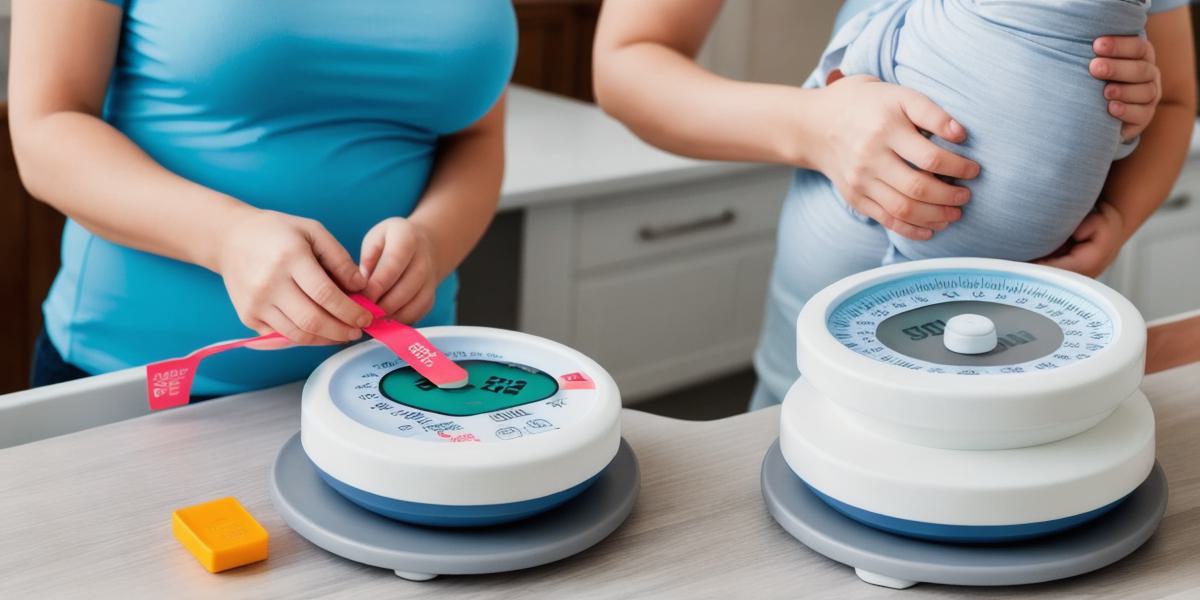How to Weigh Your Baby at Home: A Comprehensive Guide
Introduction:
Weighing your baby is an important part of monitoring their growth and development. It can help you identify any potential health issues and ensure that your baby is gaining weight appropriately. In this article, we will provide a comprehensive guide on how to weigh your baby at home, including tips on how to make the process as easy and accurate as possible.
- Understanding the Importance of Weighing Your Baby:
Before we dive into how to weigh your baby at home, let’s first understand why it’s important. Weight is an excellent indicator of your baby’s health and development. It can help you identify any potential issues early on, such as dehydration or poor weight gain. Additionally, tracking your baby’s weight can give you peace of mind that they are growing and developing normally. - Choosing the Right Scale:
The next step is to choose the right scale for weighing your baby. There are several options available on the market, including electronic scales and traditional balance beam scales. For accuracy, it’s recommended to use an electronic scale specifically designed for babies. These scales typically come with a built-in baby mode that adjusts for the baby’s clothing and shoes. - Preparing Your Baby:
Before weighing your baby, make sure they are dressed in lightweight clothing that doesn’t restrict movement. Remove any hats, shoes, and socks to ensure an accurate reading. It’s also important to note that babies should be weighed at the same time of day each time to get consistent readings. - Weighing Your Baby:
To weigh your baby, place them on the scale with their feet flat on the surface. Make sure they are not sitting up or leaning back. Record the weight and compare it to the recommended range for their age. If you notice any significant changes in weight, contact your pediatrician. - Tips for Accurate Readings:
To ensure accurate readings, make sure your baby is calm and relaxed during the weigh-in process. It’s also important to note that babies can gain weight rapidly, so it’s recommended to weigh them every two weeks to keep track of their progress. - FAQs:
Q: Is it safe to weigh my baby at home?
A: Yes, weighing your baby at home is safe as long as you follow the guidelines and use a scale specifically designed for babies.
Q: How often should I weigh my baby?
A: It’s recommended to weigh your baby every two weeks during their first year of life to keep track of their progress.
Q: Can I weigh my baby while they are sleeping?
A: No, it’s best to wake up your baby for the weigh-in process to ensure they are calm and relaxed.
Conclusion:
Weighing your baby at home is an important part of monitoring their growth and development. By following these guidelines, you can ensure that you get accurate readings and keep track of your baby’s progress. Remember, if you have any concerns about your baby’s weight or health, always consult with your pediatrician.
